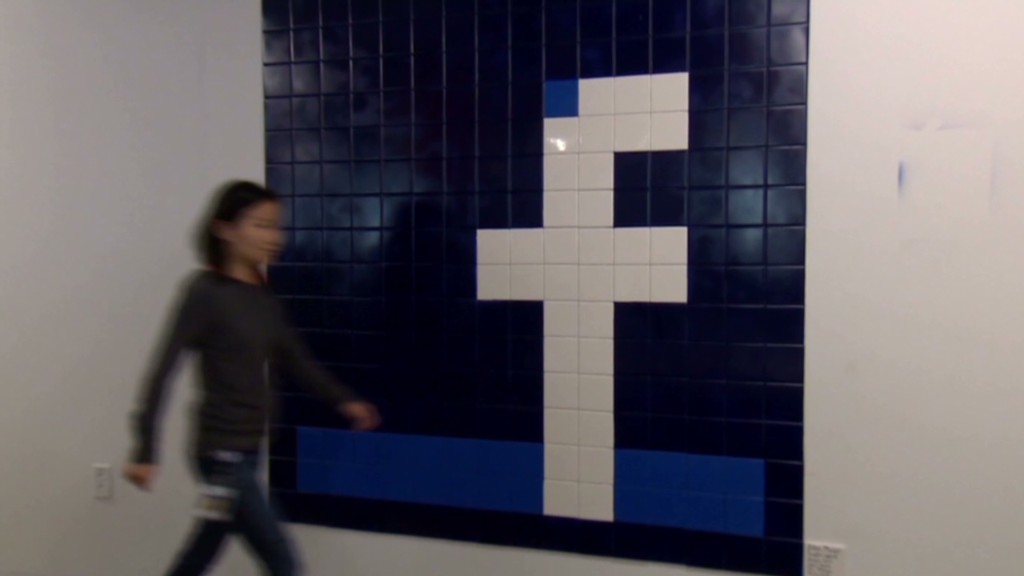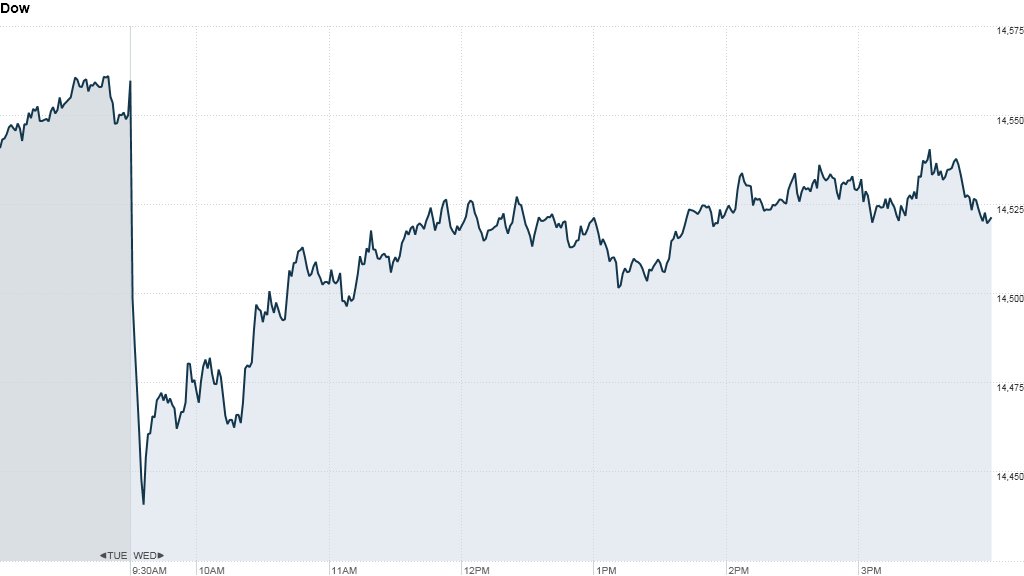U.S. stocks recovered from earlier weakness Wednesday to end mixed as investors continue to monitor the situation in Cyprus.
The S&P 500 fell 1 point to end just below its all-time high of 1,565.15 from October 2007. The Dow Jones industrial average fell 0.2%. The Nasdaq rose 0.1%.
C is still for Cyprus. Stocks sank earlier Wednesday on concerns about Cyprus, where banks are set to reopen Thursday after being closed since March 16. The ministry of finance announced plans to limit the amount of money that depositors can withdraw in an attempt to prevent a bank run, according to the Cyprus News Agency.
The island nation agreed early Monday to raise billions of euros from big depositors at the Bank of Cyprus and Popular Bank of Cyprus, and to shrink its banking sector in return for a €10 billion European Union bailout.
Investors were encouraged by reports that the capital controls in Cyprus will only be in effect for seven days, said Dan Greenhaus, market strategist at BTIG. But he was skeptical that this would be the case, adding that investors are still gravitating towards more defensive sectors of the stock market.
"The sectors that are leading the way higher are utilities and health care, and energy," said Greenhaus. "These don't really have anything to do with Cyprus."
Overall, stocks have followed a similar pattern over the past few days, falling in the morning and rebounding in the afternoon, he added. "Whatever dip we have gets bought," said Greenhaus.
Traders said volumes were anemic, with many market participants out for Passover and preparing for Good Friday, when U.S. and European markets will be closed.
Banks in focus. European markets ended the day lower, with shares of banks leading the decline. Deutsche Bank (DB) shares fell 3% on a rumor that the German bank could have its credit rating downgraded, said Dave Rovelli, managing director of U.S. equity trading at brokerage Canaccord Genuity.
Meanwhile, two reports from the European Union highlighted the gloomy economic and business outlook in Europe. The EU business climate indicator fell 0.14 points in March, extending a downturn that goes back to Sept. 2011. A separate survey showed that economic sentiment in Europe fell in March, while consumer confidence was little changed.
Also in Europe, British banks need to raise £25 billion, or about $38 billion, this year to buffer against the potential for future financial turmoil.
"Europe's getting demolished. The banks are getting crushed," said Rovelli. "That's weighing on our banks and taking down our markets, but we were due for a sell-off."
Shares of JPMorgan (JPM), Citigroup (C) and Bank of America (BAC) all fell.
A rare bit of weak news about home sales. On the economic front, the National Association of Realtors said pending home sales, a measure of purchases that have not yet closed, fell 0.4% in February. Economists had expected the index to have risen 2%, according to a Briefing.com consensus of economist forecasts.
NAR said the limited number of homes for sale in certain parts of the country was holding the market back. Despite the drop in February from March, the index is up 8.4% versus February 2012.
Related: Fear & Greed Index gets extremely greedy
Asian markets ended higher. The Shanghai Composite and Nikkei added 0.2%, while the Hang Seng advanced 0.7%.

However, worries over attempts to rein in runaway real estate prices and rapid growth in China have capped Chinese indexes so far this year, while Japanese stocks have soared.
Cliffs has fiscal problems. And AOL's got an upgrade! In corporate news, shares of Cliffs Natural Resources (CLF) fell 14%. The stock, which has been the worst performer in the S&P 500 this year, was hit with two analyst downgrades Wednesday.
AOL (AOL) rose more than 8% after an analyst at Barclays upgraded the stock. Shares of the online content firm are up more than 30% so far this year.
Shares of SAIC (SAI) rose after the defense technology firm reported a quarterly profit late Tuesday and announced a special $1 per share cash dividend payment.



